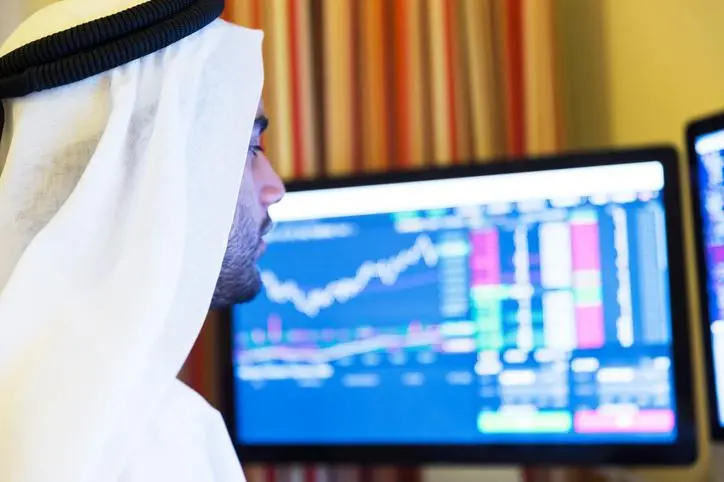PHOTO
To date nearly 2,000 entities from more than 50 countries with total combined assets exceeding $38 trillion have signed up to the UN-PRI. Other voluntary responsible and sustainable corporate policies have been launched, such as the UN Global Compact (UN-GC), which is a leadership platform for more than 13,000 participants from 130 counties, drawn from the business and non-business sectors. What draws these participants are the four pillars of the UN-GC, which seeks to align businesses with “universally accepted” principles in human rights, labor policies, environment and anti-corruption. All are covered by appropriate declarations such as the Universal Declaration of Human Rights, the International Labor Declaration on Fundamental Principles and Rights at Work, the Rio Declaration on Environment and Development, and the UN Convention Against Corruption.
Once again, some will be guided by ethical principles derived from their religion — what better way is there to ensure workers’ basic rights than in the Muslim saying to “give a worker his dues before the sweat is dry on his forehead?” Ethics is not the monopoly of Islam, as most religions share the same basic purpose — socioeconomic justice. However, in an Islamic framework, individuals not only live for themselves — the range of their activities and responsibilities extends to the welfare and interests of society at large. Islam specifically states that humans are mere guardians of nature’s wealth and not its owners and should act accordingly in this guardianship role to pass it on to future generations. An Islamic economic definition of “sustainability” is that meeting our current economic needs must be carried out without sacrificing the needs of future generations. In Islam, the rights and obligations of individuals and organizations, with respect to others, are clearly defined by religion, making it a stronger and more effective basis for ethical values. As such, in the Islamic context, ethical investments and social responsibilities of individuals also apply to firms, which is of central importance in promoting economic sustainability.
Islam does not prohibit trade and commerce, as the religion considers work to be part of the worship of God (“Al Shugul Ibada”), and, according to Islamic law, individuals have the right to get return for utilizing their capital in an economic venture, but the issue, as currently explored by the ESG initiatives, is how it can be acquired.
On a business level, since Shariah defines the norms of human conduct and how business has to deal with its external environment, businesses claiming to comply with Shariah should be clearer about their roles in society. The permissible range of choices of Islamic investment is wide, as long as it involves investment in companies and businesses that undertake to deploy funding on a permissible or “halal” business.
Generally, investment decisions are based solely on financial criteria, such as risk and returns, but as the emphasis on global ESG has shown, investors have started taking into account a new dimension that is the ethical nature and the social responsibilities attached to other investments. Islamic investing is grounded in Islamic finance principles, which aims to meet investor’s financial needs with integrity, and in a manner that is fair, trustworthy and honest and ensures a more equitable wealth distribution. ESG is no longer thematic but mainstreaming, as, much like their ESG counterparts, funds managed according to “halal” principles do not invest in tabaco, alcohol, gambling, arms and munitions, adult entertainment or companies with excessive debt. Western ethical fund managers are not only concerned about the financial returns on their portfolios and the risks involved, but also with the characteristics of the companies in which funds are placed. This, like in Islamic portfolio selection, involves the nature of the company’s goods or services, the location of its business and the manner in which it conducts its affairs.
Companies wishing to survive in the long-term by meeting ESG principles see this as paying off, as the strategy for ethical investment can either be positive or negative, the former being supportive of companies which are particularly approved of in terms of their products, activities or business methods. On the negative side, this aims to avoid investing in companies which are involved in unacceptable products, or whose business methods are regarded as unethical. In Islamic investment, negative criteria are more usual than positive criteria, with fund managers starting with a complete listing of quoted companies and then excluding the unethical minority.
Islamic finance in general rejects uncertainty, not because it is risk aversive but because a risky investment could potentially involve selling goods and assets of uncertain quality, which goes against the Islamic principle of certainty and openness in business dealings. A Shariah fund does not use complex investment methods and instruments that could involve greater uncertainty, risk and speculation such as derivatives products which became the hallmark of the near collapse of the international financial system during the 2008-2009 global financial crisis, summarized in one word: greed. For Muslim investors, personal and family financial interests are a matter of conscience, which has to be balanced with the quest for financial purity in an honest manner.
This will not be easy to implement globally without a significant change in mindset and there is still a long way to go before religious principles, which have stood the test of time, can show the way for ESG application.
• Dr. Mohamed Ramady is a former senior banker and Professor of Finance and Economics, King Fahd University of Petroleum and Minerals, Dhahran.
Copyright: Arab News © 2021 All rights reserved. Provided by SyndiGate Media Inc. (Syndigate.info).





















